How can parents select the best lacrosse camp for their young athlete. What factors should be considered when evaluating different programs. Which aspects of lacrosse camps contribute to a positive and beneficial experience for youth players.
Evaluating Coaching Staff Credentials: The Foundation of a Great Lacrosse Camp
When searching for the ideal lacrosse camp for your young athlete, the coaching staff’s credentials should be your primary focus. Experienced coaches with a proven track record in both playing and teaching lacrosse can significantly impact your child’s development and enjoyment of the sport.
Top-tier lacrosse camps often boast coaches from NCAA Division 1 college programs. For instance, Gamebreaker Lacrosse camps have been running youth programs for over 25 years, leveraging their extensive experience to challenge players of various skill levels. Similarly, Nike Lacrosse Camps collaborate with coaches from leading college lacrosse programs nationwide, ensuring high-quality instruction.

Key Questions to Ask About Coaching Staff:
- Do the coaches have personal experience playing lacrosse at a high level?
- What is their coaching background, particularly with youth athletes?
- Can they demonstrate a successful history of developing young lacrosse players?
- Are they able to create engaging drills and games that teach fundamental skills?
By prioritizing camps with well-credentialed coaching staff, you’re setting your child up for a rewarding and educational lacrosse experience.
Understanding Camp Focus and Format: Tailoring the Experience to Your Child’s Needs
The focus and format of a lacrosse camp play a crucial role in determining its suitability for your young athlete. Different camps cater to varying skill levels and emphasize distinct aspects of the game.
For beginners and intermediate players, a skills-focused camp like the Nike Lacrosse Camp in Pennington, NJ, could be an excellent choice. These camps typically offer a lower coach-to-camper ratio, allowing for more personalized instruction and a strong emphasis on building fundamental skills.
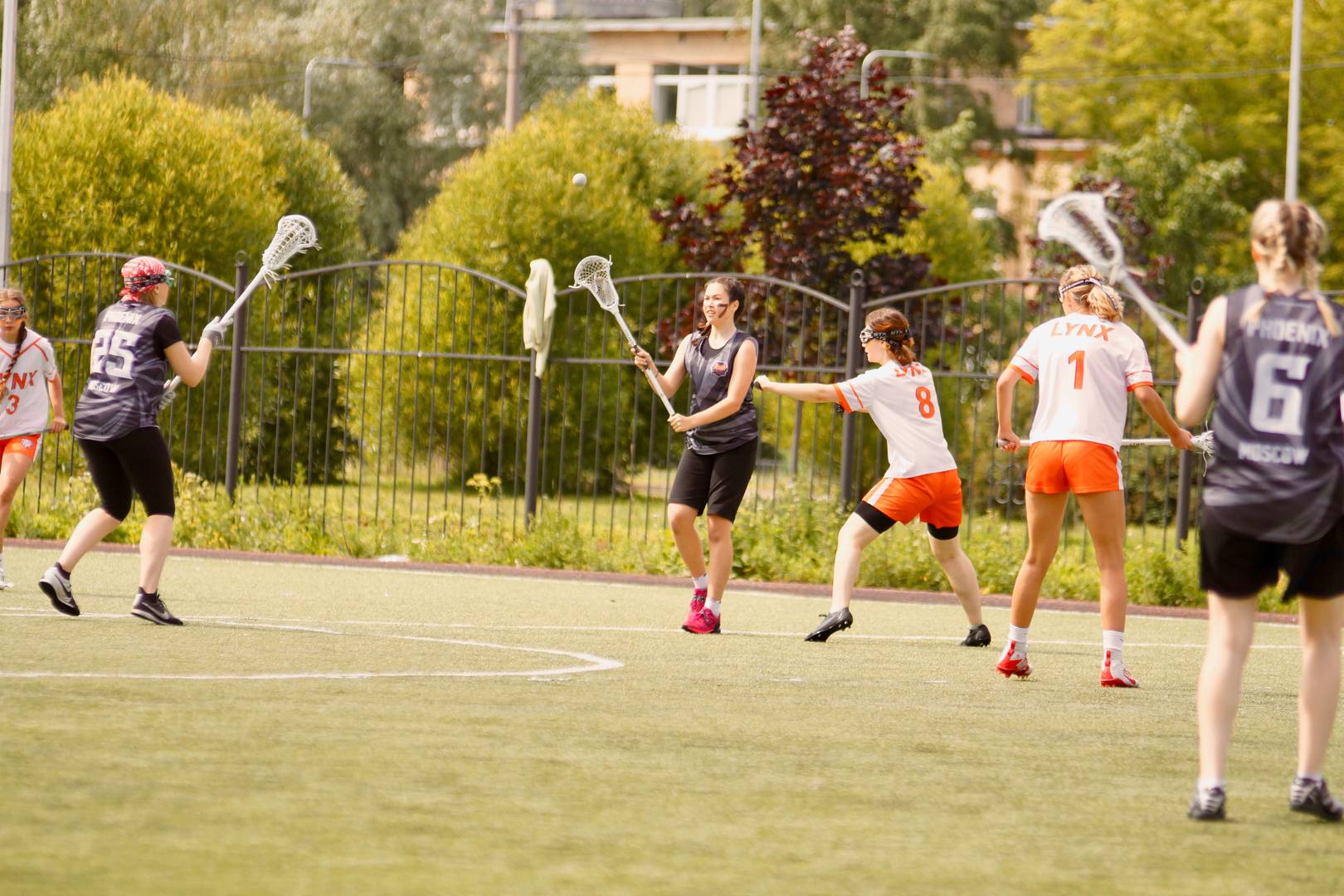
On the other hand, advanced or highly competitive players might benefit more from an intense “boot camp” style program. The Maverik Showtime Lacrosse camp, for example, adopts a “train like a pro” mentality, focusing on high-level instruction and elite competition to challenge top talent.
Factors to Consider in Camp Focus and Format:
- Skill level emphasis (beginner, intermediate, advanced)
- Balance between drills and scrimmages
- Focus on specific aspects (fundamentals, game strategy, positional skills)
- Overall atmosphere (relaxed vs. competitive)
- Alignment with your child’s personality and goals
By carefully evaluating the camp’s focus and format, you can ensure that it aligns with your child’s current abilities and future aspirations in lacrosse.
Location and Amenities: Enhancing the Lacrosse Camp Experience
The location and amenities of a lacrosse camp can significantly impact your child’s overall experience. Consider factors such as distance from home, type of program (day camp vs. overnight), and available facilities when making your decision.

Overnight camps, like Maverik Lacrosse Camp, offer a fully immersive lacrosse experience, allowing players to eat, sleep, and breathe the sport for an entire week. However, day camps provide the flexibility for players to return home each evening, which may be preferable for some families.
Important Amenities to Look For:
- High-quality playing surfaces (turf or well-maintained grass fields)
- Access to weight rooms and training facilities
- Proper locker rooms and equipment storage
- On-site medical facilities or athletic training rooms
- Comfortable lodging for overnight camps
- Nutritious meal options
Additional perks like camp t-shirts, water bottles, and gear bags can enhance the overall experience and provide lasting mementos for your young athlete.
Health, Safety, and Supervision: Ensuring Peace of Mind for Parents
When entrusting your child to a lacrosse camp, it’s crucial to have confidence in the program’s health, safety, and supervision protocols. Reputable camps prioritize these aspects to provide a secure environment for all participants.

Athletic trainers should be readily available on-site to address any injuries or medical concerns that may arise during camp activities. Additionally, comprehensive insurance coverage for campers and well-defined emergency response plans are essential components of a safe camp experience.
Key Safety Considerations:
- Presence of certified athletic trainers
- Comprehensive insurance coverage for campers
- Clear emergency response protocols
- Adequate supervision during non-lacrosse activities
- Appropriate coach-to-camper ratios
- Strict adherence to safety guidelines and equipment regulations
Don’t hesitate to inquire about specific policies regarding transportation, permission slips, and codes of conduct. A transparent and thorough approach to these matters indicates a well-organized and safety-conscious camp.
Cost and Value: Balancing Quality and Affordability in Lacrosse Camps
The cost of lacrosse camps can vary significantly based on factors such as duration, location, amenities, and coaching staff. While it’s tempting to focus solely on price, it’s essential to consider the overall value provided by each camp.

More expensive camps led by renowned college coaches may offer invaluable mentoring opportunities for serious players. However, local day camps can provide an excellent introduction to the sport for beginners at a more affordable price point.
Factors Influencing Camp Costs:
- Duration of the camp (day camp vs. overnight camp)
- Reputation and credentials of coaching staff
- Quality of facilities and equipment
- Inclusion of meals and lodging
- Additional perks (camp gear, photos, transportation)
When evaluating costs, be sure to inquire about what’s included in the base price and what may require additional fees. Some camps charge separately for gear, camp photos, early drop-off/late pick-up, and transportation.
Ultimately, the goal is to find a camp that offers the best combination of quality instruction, appropriate skill level, and overall experience within your budget.
The Power of Reviews: Gaining Insight from Past Campers and Parents
One of the most valuable resources in your search for the perfect lacrosse camp is the feedback from previous participants and their parents. These first-hand accounts can provide crucial insights into the camp’s strengths, weaknesses, and overall experience.

Look for reviews on the camp’s official website, social media pages, and third-party review sites. Pay attention to recurring themes in the feedback, both positive and negative. While it’s unrealistic to expect 100% positive reviews, a preponderance of satisfied campers and parents is a good indicator of a quality program.
Tips for Evaluating Camp Reviews:
- Focus on recent feedback from the past 1-2 years
- Look for specific details about coaching quality, facilities, and overall experience
- Consider both positive and negative reviews to get a balanced perspective
- Reach out to parents whose children have attended the camp for personalized insights
- Pay attention to how the camp responds to any negative feedback
Remember that while reviews are valuable, they should be considered alongside other factors such as coaching credentials, camp focus, and your child’s specific needs and goals.
Preparing Your Child for Lacrosse Camp: Maximizing the Experience
Once you’ve selected the ideal lacrosse camp for your young athlete, it’s important to prepare them for the experience. Proper preparation can help ensure that your child gets the most out of their time at camp and returns home with improved skills and a greater love for the game.

Essential Preparation Steps:
- Discuss expectations and goals for the camp experience
- Ensure all necessary equipment is in good condition
- Review the camp schedule and any specific rules or guidelines
- Encourage an open mind and willingness to learn from new coaches
- Emphasize the importance of teamwork and sportsmanship
Proper preparation can help alleviate any anxiety your child may have about attending camp and set them up for a positive and rewarding experience.
Do lacrosse camps offer specialized instruction for different positions?
Many high-quality lacrosse camps do offer specialized instruction for different positions. These camps recognize that each position on the field requires unique skills and strategies. For example:
- Attackers may focus on shooting accuracy, dodging techniques, and offensive strategies
- Midfielders might receive instruction on both offensive and defensive play, as well as face-off techniques
- Defenders could concentrate on body positioning, stick checks, and clearing the ball
- Goalies often have dedicated sessions for reaction time, positioning, and communication skills
When researching camps, look for those that offer position-specific training sessions or breakout groups. This targeted instruction can significantly enhance your child’s development in their preferred role on the field.

How can parents assess the camp’s ability to improve their child’s lacrosse skills?
Assessing a camp’s effectiveness in improving lacrosse skills requires careful consideration of several factors:
- Coaching expertise: Look for camps with experienced coaches who have a track record of developing young players
- Skill assessment: Quality camps often conduct initial skill evaluations to tailor instruction to each player’s needs
- Progress tracking: Some camps provide progress reports or end-of-camp evaluations to highlight areas of improvement
- Feedback from past participants: Read reviews or speak with parents whose children have attended the camp previously
- Camp curriculum: Examine the daily schedule and types of drills or activities offered
- Player-to-coach ratio: A lower ratio often allows for more individualized attention and faster skill development
Additionally, consider camps that use video analysis or advanced training techniques to provide detailed feedback on player performance and areas for improvement.

Are there any benefits to attending multiple lacrosse camps in a single summer?
Attending multiple lacrosse camps in a single summer can offer several benefits for young athletes:
- Exposure to diverse coaching styles and philosophies
- Opportunity to focus on different aspects of the game at each camp
- Increased playing time and repetitions to reinforce skills
- Chance to meet and compete against a wider variety of players
- Potential to try different positions or specialties at each camp
However, it’s important to balance the potential benefits with the risk of burnout or overtraining. Consider your child’s physical and mental stamina, as well as other summer commitments, when deciding on multiple camp attendance.
What role does nutrition play in lacrosse camps, and how do camps address dietary needs?
Nutrition plays a crucial role in athletic performance and recovery, especially during intensive lacrosse camps. Well-organized camps recognize this importance and often take steps to ensure proper nutrition for participants:

- Balanced meals: Camps typically provide nutritious meals that balance carbohydrates, proteins, and healthy fats
- Hydration stations: Access to water and electrolyte drinks is usually available throughout camp activities
- Snack options: Healthy snacks may be provided to maintain energy levels between meals
- Nutrition education: Some camps incorporate lessons on proper fueling for athletes
- Dietary accommodations: Reputable camps can usually accommodate various dietary restrictions or allergies
When researching camps, inquire about their meal plans and ability to meet specific dietary needs. This information can be crucial for ensuring your child stays properly fueled and healthy throughout the camp experience.
How do lacrosse camps incorporate mental training and sports psychology?
Progressive lacrosse camps recognize the importance of mental training in athletic development. Many camps now incorporate elements of sports psychology to help young players improve their mental game:

- Visualization techniques: Teaching players to mentally rehearse successful plays and outcomes
- Goal-setting workshops: Helping athletes establish and work towards achievable objectives
- Mindfulness and focus training: Techniques to improve concentration during high-pressure situations
- Team-building exercises: Activities designed to enhance communication and trust among players
- Stress management: Strategies for dealing with game-day nerves and performance anxiety
- Positive self-talk: Encouraging players to maintain a constructive inner dialogue
Look for camps that explicitly mention mental training or sports psychology components in their program descriptions. These elements can provide valuable tools for young athletes to excel both on and off the field.
What measures do lacrosse camps take to prevent injuries and ensure proper recovery?
Injury prevention and proper recovery are critical aspects of any well-run lacrosse camp. Reputable programs implement various measures to protect their participants:
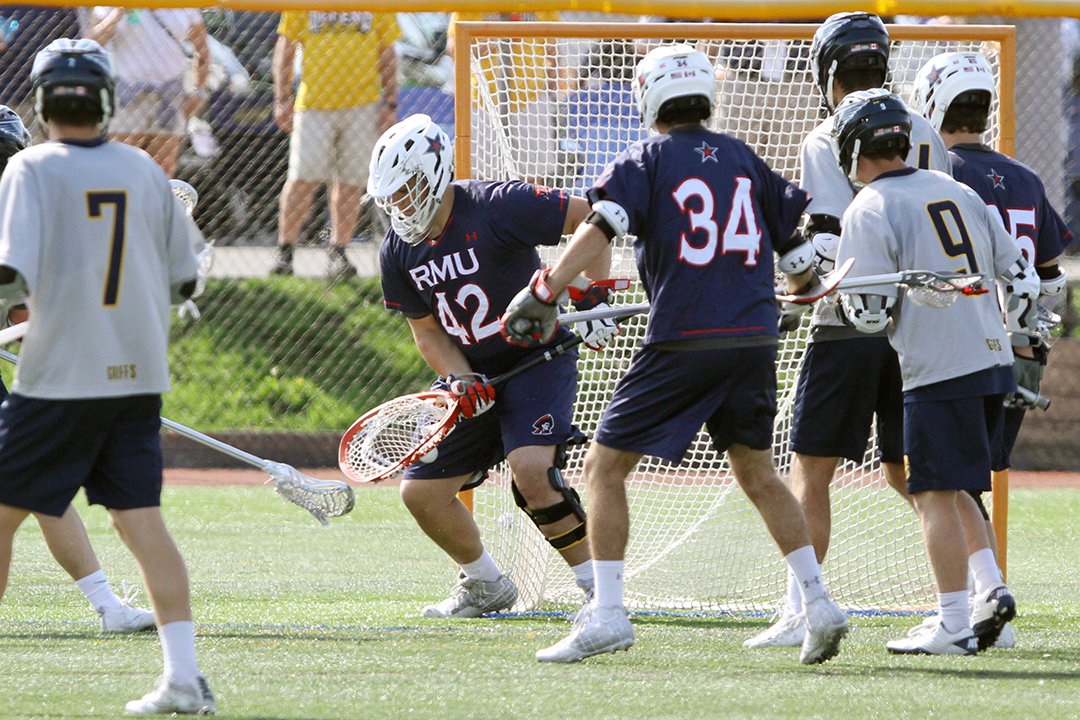
- Pre-camp health screenings: Some camps require medical clearance or health questionnaires
- Proper warm-up and cool-down routines: Ensuring players prepare their bodies for activity and recover effectively
- Graduated intensity: Camps often start with lighter activities and gradually increase intensity
- Adequate rest periods: Schedules should include breaks and downtime to prevent overexertion
- Hydration emphasis: Encouraging regular water intake to prevent dehydration-related injuries
- Proper equipment checks: Ensuring all players have correctly fitting, safe equipment
- On-site medical staff: Athletic trainers or medical professionals available to address injuries promptly
- Recovery techniques: Some camps may introduce foam rolling, stretching, or other recovery methods
When evaluating camps, ask about their injury prevention protocols and recovery strategies. A comprehensive approach to player safety can provide peace of mind and contribute to a more positive camp experience.

Look at Coaching Staff Credentials
Hey sports fans, when it’s time to pick a lacrosse camp for your aspiring athlete, it’s important to do your research. As a parent, you want to find a program that will help your child improve their skills, foster a love for the game, and create lasting memories. So where do you start? Here are some tips on what to look for when evaluating lacrosse camps for youth players.
First and foremost, take a close look at the coaching staff’s credentials. Are they experienced lacrosse players and coaches themselves? Do they have a successful track record working with young athletes? The best camps will have knowledgeable coaches who can properly teach lacrosse fundamentals while creating fun, engaging drills and games.
For example, Gamebreaker Lacrosse camps are led by coaches from NCAA Division 1 college programs. With over 25 years of experience running youth camps, their staff knows how to challenge players at different skill levels. Nike Lacrosse Camps also have a great reputation. They partner with coaches from top college lacrosse programs to run their camps across the country. Experienced coaches like these know how to get the most out of their players.
Evaluate the Camp Focus and Format

Another key factor is understanding the focus and format of the camp. Is it teaching lacrosse fundamentals, game strategy, positional skills, etc? Is it drills-based, scrimmage-focused, or a mix of both? What’s the overall atmosphere – relaxed and laidback or intense and competitive? Make sure the camp aligns with your child’s skill level, strengths, weaknesses, and personality.
For example, for beginning and intermediate players, a skills-focused camp like Nike Lacrosse Camp in Pennington, NJ could be a great fit. With a lower coach-to-camper ratio, they can focus on building a strong foundation. The practices integrate technique drills and game situations to put those skills into action. For more advanced or competitive players, an intense “boot camp” style program like Maverik Showtime Lacrosse camp might be a better option. Their train like a pro mentality focuses on high level instruction and elite competition to challenge top talent.
Check Location and Amenities
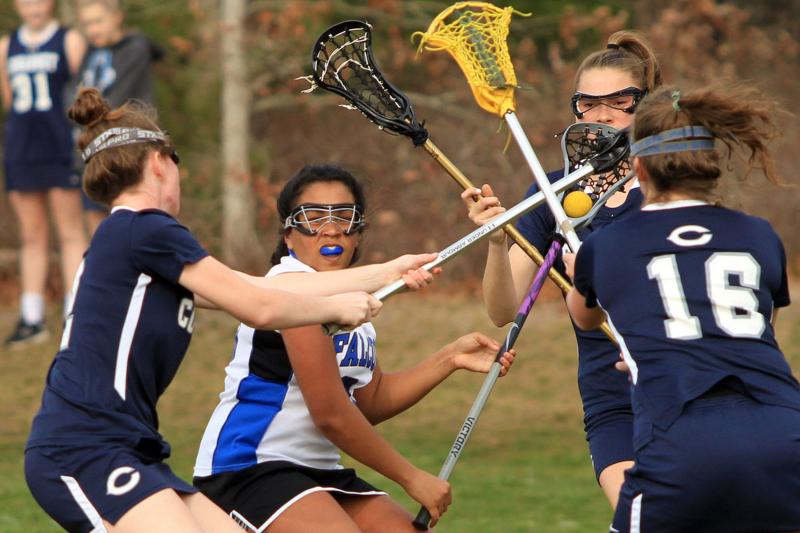
You’ll also want to consider location and amenities when researching lacrosse camps. Is the camp a reasonable drive from where you live? Is it an overnight or day program? Overnight camps like Maverik Lacrosse Camp let kids totally immerse themselves in lacrosse for a week. But day camps allow players to sleep in their own bed and spend evenings at home.
Look at what facilities the camp provides. Do they have a turf or grass field? What about weight rooms, locker rooms, training rooms, or equipment? The top programs will have excellent facilities tailored to the sport of lacrosse. Things like camp t-shirts, water bottles, and gear bags can also enhance the experience.
Learn About Health, Safety, and Supervision
Of course, you want peace of mind knowing your child will stay healthy, safe, and supervised while at camp. So ask questions about safety policies, risk management, and medical services. Reputable camps will have athletic trainers on staff, provide insurance for campers, and have plans for emergencies.
You should also understand how players are supervised when not engaged in lacrosse activities. What’s the protocol for down time, meals, overnight stays, etc? High coach-to-camper ratios and 24 hour supervision are ideal. And get details on things like transportation, permission slips, codes of conduct, and more.
Compare Cost and Value
The cost of lacrosse camps can range quite a bit based on length, amenities, and other factors. Make sure to take a close look at what’s included before you register. Most camps charge separately for things like gear, camp photos, early drop off/late pick up, and transportation.
When comparing costs, think about the value of the overall experience. A more expensive camp led by big name college coaches may provide amazing mentoring for serious players. But a local day camp could give beginners a taste of lacrosse for a more affordable price. Focus on choosing the right program for your child, not necessarily the most expensive.
Read Camp Reviews
One of the best ways to evaluate a lacrosse camp is to read reviews from past campers and parents. This inside perspective on the coaching, facilities, experience, and more can prove invaluable during your selection process.
Check the camp’s website, Facebook page, or third party review sites. Look for common themes about strengths and weaknesses of the program. But keep in mind, no camp will receive 100% positive reviews. Pay most attention to recent feedback from the last 1-2 years.
If possible, talk to other parents whose kids have attended the camps you’re considering. Ask about their child’s experience, what they liked most or would change, and if they recommend the program.
Sign Up Early
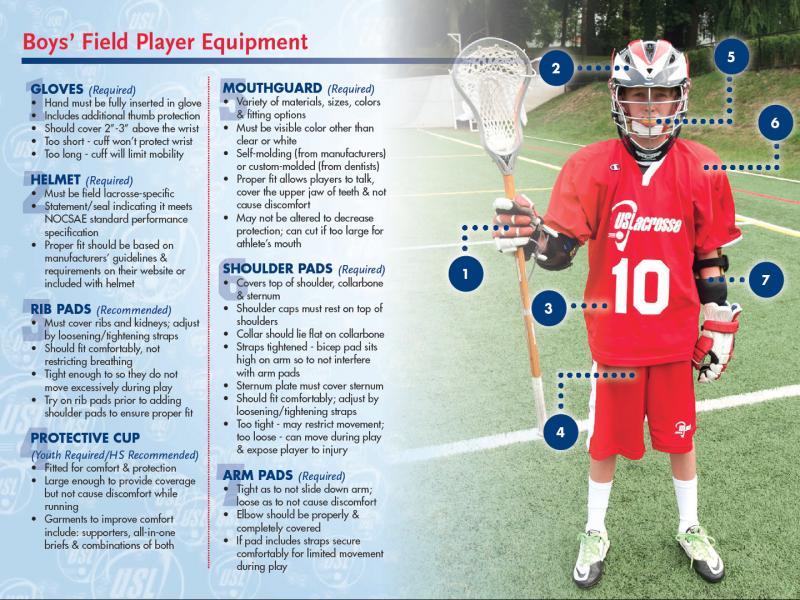
The best lacrosse camps often fill up fast. Once you’ve identified one or two top choices, register well in advance to secure a spot. Many programs offer early bird discounts for signing up before a certain date.
Create an account on the camp website so you can manage details like registration forms, payments, gear orders, roommate requests, transportation needs, and more. This will help ensure a smooth on-boarding process leading up to camp.
Start getting your child excited by discussing what they’ll work on at camp. Some anticipation and mental preparation can help them make the most of the experience once camp starts.
Finding the right lacrosse camp takes some up front work as a parent. But the payoff comes in helping your athlete make new friends, fall in love with lacrosse, gain skills and confidence, and make memories that will last a lifetime. With an informed choice based on their needs, strengths, and goals, you can set them up for an amazing summer camp adventure.
Evaluate Camp Location and Facilities

Yo, when you’re scoping out lacrosse camps for your young baller, the camp’s spot and amenities need to be on your checklist, no doubt. As a caring parent, you want to find a program that helps your kiddo step up their skills, fall in love with lax, and make epic memories. So where’s the starting point? Here are some hot tips on what to assess when reviewing lacrosse camps for youth athletes.
First things first, check out the coaching crew’s credentials. Are they seasoned lacrosse players and coaches themselves? Do they have a winning track record working with youngins? The dopest camps will have knowledgeable coaches who can properly school lacrosse fundamentals while creating rad drills and games.
For example, Gamebreaker Lacrosse camps are led by coaches from NCAA D1 college programs. With over 25 years of experience running youth camps, their squad knows how to challenge players at different skill levels. Nike Lacrosse Camps also have a great rep. They partner with coaches from top college lacrosse programs to run their camps across the country. Seasoned coaches like these know how to get the most out of their players.
Scan the Camp Focus and Structure
Another key aspect is understanding the focus and format of the camp. Is it teaching lacrosse fundamentals, game strategy, positional skills, etc? Is it drills-based, scrimmage-focused, or a combo? What’s the overall vibe – chill and relaxed or intense and competitive? Make sure the camp aligns with your kid’s skill level, strengths, weaknesses, and personality.
For example, for newbie and intermediate ballers, a skills-focused camp like Nike Lacrosse Camp in Pennington, NJ could be a swell fit. With a lower coach-to-camper ratio, they can focus on building a solid foundation. The practices mix technique drills and game sitchs to put those skills into action. For more advanced or competitive athletes, an intense “boot camp” style program like Maverik Showtime Lacrosse camp might be a better opt. Their train like a pro mentality focuses on elite instruction and competition to challenge top talent.
Evaluate Camp Location and Facilities
You’ll also want to consider location and amenities when researching lacrosse camps. Is the camp a reasonable drive from your neck of the woods? Is it an overnight or day sesh? Overnight camps like Maverik Lacrosse Camp let kids fully immerse themselves in lacrosse for a week. But day camps allow players to sleep in their own bed and spend evenings at home.
Peep what facilities the camp provides. Do they have a turf or grass field? What about weight rooms, locker rooms, training rooms, or equipment? The top programs will have excellent facilities tailored to lax. Things like camp tees, water bottles, and gear bags can also enhance the experience.
Check out Health, Safety, and Supervision
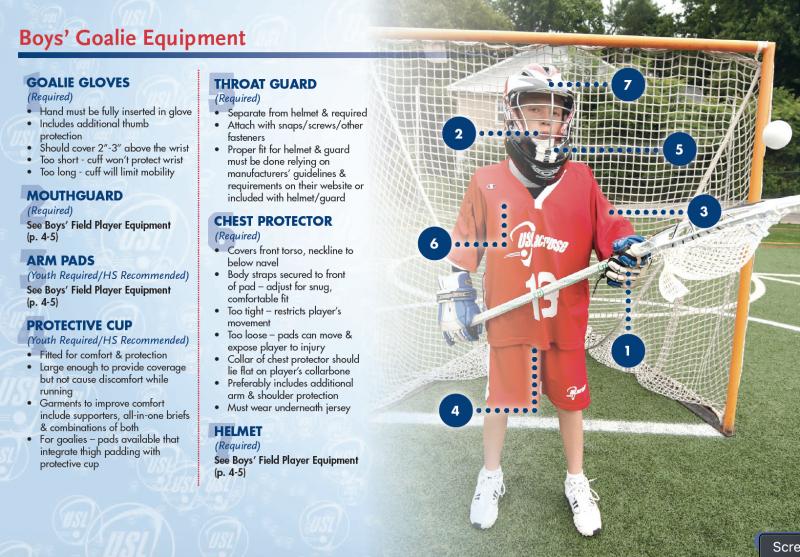
Of course, you want peace of mind knowing your child will stay healthy, safe, and supervised while at camp. So ask Q’s about safety policies, risk management, and medical services. Reputable camps will have athletic trainers on staff, provide insurance for campers, and have plans for emergencies.
You should also understand how players are supervised when not doing lacrosse activities. What’s the protocol for chill time, meals, overnight stays, etc? High coach-to-camper ratios and 24/7 supervision are ideal. And get the scoop on things like transportation, permission slips, codes of conduct, and more.
Compare Cost and Value
The cost of lacrosse camps can vary quite a bit based on length, amenities, and other factors. Make sure to take a close look at what’s included before you register. Most camps charge separately for things like gear, camp pics, early drop off/late pick up, and transportation.
When comparing costs, think about the value of the full experience. A pricier camp led by big name college coaches may provide sick mentoring for serious athletes. But a local day camp could give newbs a taste of lax for a more affordable price. Focus on choosing the right program for your kid, not necessarily the most expensive.
Read Camp Reviews
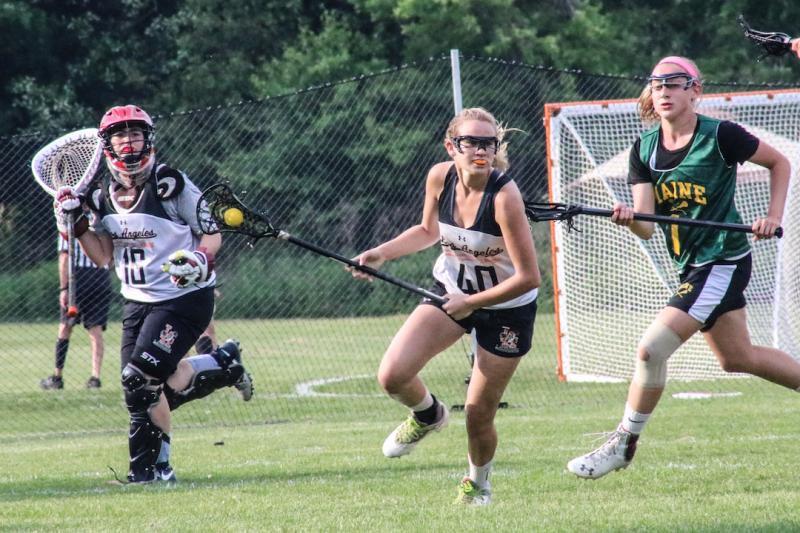
One of the best ways to evaluate a lacrosse camp is to read reviews from past campers and parents. This inside scoop on the coaching, facilities, experience, and more can prove invaluable during your selection process.
Check the camp’s site, Facebook, or third party review sites. Look for common themes about strengths and weaknesses of the program. But keep in mind, no camp will get 100% positive reviews. Pay most attention to recent feedback from the last 1-2 years.
If possible, chat with other parents whose kiddos have attended the camps you’re considering. Ask about their child’s experience, what they liked most or would change, and if they recommend the program.
Sign Up Early
The best lacrosse camps often fill up fast. Once you’ve IDed one or two top choices, register well in advance to secure a spot. Many programs offer early bird discounts for signing up before a certain date.
Create an account on the camp website so you can manage details like registration forms, payments, gear orders, roommate requests, transportation needs, and more. This will help ensure a smooth on-boarding process leading up to camp.
Start getting your kid pumped by discussing what they’ll work on at camp. Some anticipation and mental prep can help them make the most of the experience once camp starts.
Finding the right lacrosse camp takes some up front work as a parent. But the payoff comes in helping your baller make new friends, fall in love with lax, gain skills and confidence, and make memories that will last a lifetime. With an informed choice based on their needs, strengths, and goals, you can set them up for an epic summer camp adventure.
Check Camp Schedule and Structure
Listen up parents, selecting the perfect lacrosse camp for your young player requires some research. As their number one fan, you want to find a program that boosts their skills, sparks a passion for the sport, and whips up epic summer memories. So what should you examine when assessing lacrosse camps for youth athletes? Here’s the lowdown on key factors to consider.
For starters, inspect the coaching staff’s experience. Are they seasoned lacrosse competitors and teachers themselves? Do they have a winning track record developing young talent? Top-notch camps will have knowledgeable coaches who effectively teach fundamentals while engineering engaging drills and games.
For instance, Gamebreaker Lacrosse camps are led by coaches from NCAA D1 college teams. With over 25 years running youth camps, their staff knows how to challenge athletes at different ability levels. Nike Lacrosse Camps also boast stellar reputations. They partner with coaches from elite college programs to direct their nationwide camps. Seasoned coaches like these understand how to maximize players’ potential.
Check Camp Schedule and Structure
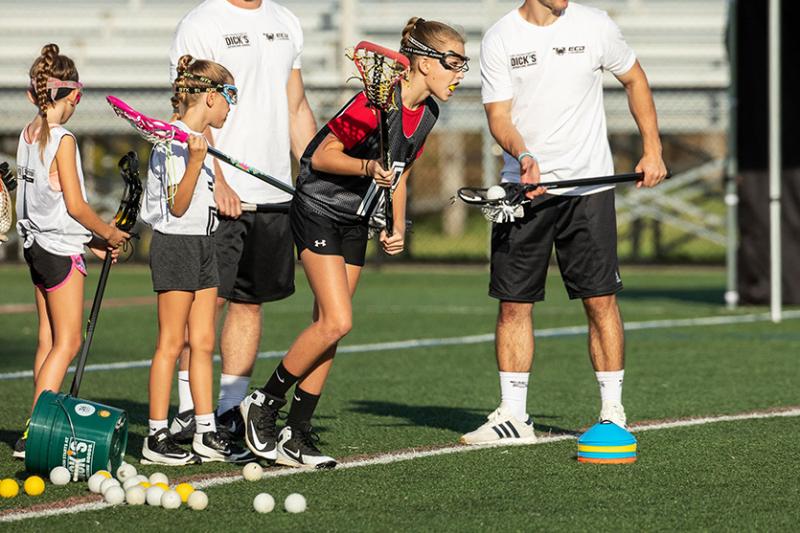
Additionally, grasp the camp’s focus and format. Will it teach lacrosse basics, strategy, positional expertise, etc? Are activities drill-based, scrimmage-focused, or a blend? What’s the general atmosphere – laidback and easygoing or serious and competitive? Ensure the camp suits your child’s skill level, strengths, weaknesses, and temperament.
For instance, for rookie and intermediate athletes, a skills-centric camp like Nike Lacrosse Camp in Pennington, NJ could be ideal. With a lower coach-to-camper ratio, they can emphasize proper technique. Drills integrate with game situations to put new skills into play. For more advanced or competitive players, an intense “boot camp” like Maverik Showtime Lacrosse camp may be better. Their professional training mentality prioritizes elite instruction and competition to test top talent.
Research Health, Safety and Supervision
Naturally, you want confidence knowing your child will remain healthy, safe, and monitored at camp. So inquire about safety procedures, risk management, and medical services. Reputable camps employ athletic trainers, insure campers, and prepare for emergencies.
Also learn how players are supervised outside lacrosse activities – during downtime, meals, overnights, etc. Optimal coach-to-camper ratios and 24/7 oversight are ideal. Get information on transportation, waivers, codes of conduct, and more.
Compare Camp Cost and Value

Camp costs vary based on duration, features, and other variables. Closely examine what’s included before registering. Most charge separately for equipment, photos, early/late hours, transportation, etc.
When weighing expenses, consider the overall experience value. A pricier camp led by renowned college coaches may provide incredible mentoring for serious athletes. But a local day camp could introduce beginners to lacrosse at a more affordable cost. Focus on choosing the right fit for your child, not necessarily the most expensive.
Read Camp Reviews
Reading reviews from past campers and parents provides invaluable insight into coaching, facilities, experiences, and more during your selection process.
Check the camp website, Facebook, or third party review platforms. Look for common feedback on program strengths and weaknesses. Remember, no camp earns 100% positive reviews. Prioritize recent comments from the past 1-2 years.
If possible, speak with other parents of camp attendees. Ask about their child’s experience, what they liked most or would change, and if they recommend the program.
Register Early
Top lacrosse camps often fill quickly. Once you identify one or two preferred options, register early to secure a spot. Many offer discounts for early sign-ups.
Create a camp website account to manage registration paperwork, payments, gear purchases, roommate requests, transportation needs, etc. This facilitates smooth onboarding leading up to camp.
Start generating excitement by discussing skills your child will hone at camp. Some anticipation and mental preparation can help maximize their experience once camp begins.
Selecting the ideal lacrosse camp requires some parental legwork. But the payoff is an enriching summer where your athlete makes friends, falls in love with lacrosse, gains confidence and ability, and builds lifelong memories. By making an informed choice based on their needs, talents, and aspirations, you can set them up for an epic camp adventure.
Review Cost and Value
Greetings parents! When selecting a primo lacrosse camp for your rising star, doing your homework is key. As their number one advocate, you want to identify a program that elevates their abilities, sparks a passion for lacrosse, and whips up unforgettable summer memories. So what should you analyze when weighing lacrosse camps for youth competitors? Here’s the inside scoop on pivotal factors to ponder.
First and foremost, inspect the coaching staff’s credentials. Are they experienced lacrosse athletes and instructors themselves? Do they have a successful track record cultivating young talent? Top-tier camps will employ knowledgeable coaches who adeptly teach fundamentals while engineering engaging drills and games.
For example, Gamebreaker Lacrosse camps are led by coaches from NCAA D1 college crews. With over 25 years directing youth camps, their staff understands how to challenge athletes at different skill levels. Nike Lacrosse Camps also have stellar reputations. They team up with coaches from elite college programs to helm their nationwide camps. Seasoned coaches like these comprehend how to maximize players’ potential.
Review Cost and Value
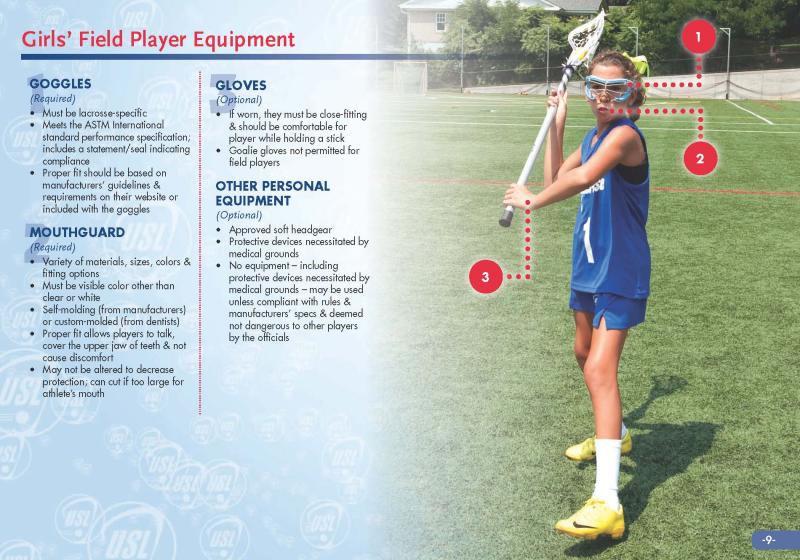
Additionally, grasp the camp’s emphasis and structure. Will it teach lacrosse basics, strategy, positional skills, etc? Are activities drill-focused, scrimmage-centric, or a combination? What’s the overall vibe – low-key and relaxed or serious and competitive? Confirm the camp matches your child’s ability, strengths, weaknesses, and personality.
For example, for novice and intermediate players, a skills-focused camp like Nike Lacrosse Camp in Pennington, NJ could be a great match. With a lower coach-to-camper ratio, they can accent proper technique. Drills integrate with game situations to implement new skills. For more advanced or competitive athletes, an intense “boot camp” like Maverik Showtime Lacrosse camp may be preferable. Their professional training attitude emphasizes elite instruction and competition to test top talent.
Research Health, Safety and Oversight
Naturally, you want confidence knowing your child will remain healthy, safe, and supervised at camp. So ask about safety policies, risk management, and medical services. Reputable camps utilize athletic trainers, insure campers, and prepare for emergencies.
Also learn how players are monitored outside lacrosse activities – during free time, meals, overnights, etc. Optimal coach-to-camper ratios and 24/7 oversight are ideal. Get information on transportation, waivers, codes of conduct, and more.
Read Camp Reviews
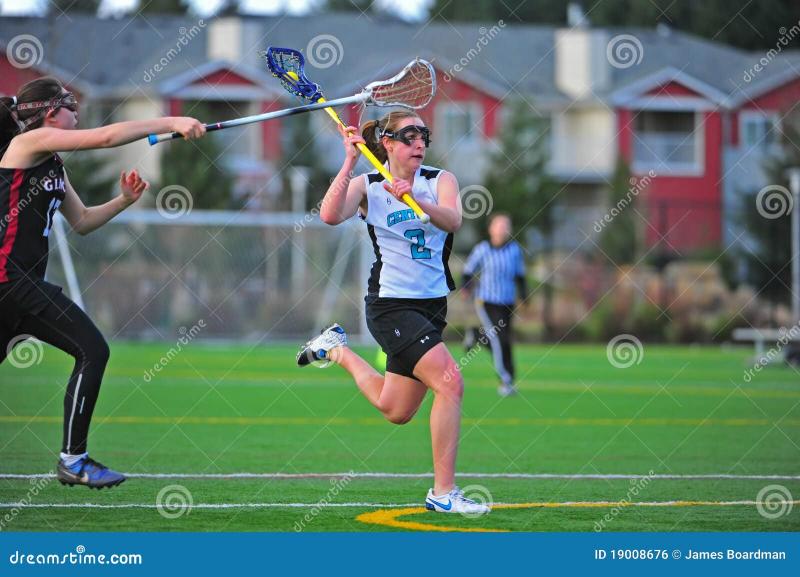
Reading feedback from past campers and parents provides invaluable perspective into coaching, facilities, experiences, and more during your selection process.
Check the camp website, Facebook, or third party review platforms. Look for common feedback on program strengths and weaknesses. Remember, no camp earns 100% positive reviews. Prioritize recent comments from the past 1-2 years.
If possible, speak with other parents of camp attendees. Ask about their child’s experience, what they liked most or would change, and if they recommend the program.
Register Early
Top lacrosse camps often fill quickly. Once you identify one or two preferred options, register early to secure a spot. Many offer discounts for early sign-ups.
Create a camp website account to manage registration paperwork, payments, gear purchases, roommate requests, transportation needs, etc. This facilitates smooth onboarding leading up to camp.
Start generating excitement by discussing skills your child will hone at camp. Some anticipation and mental preparation can help maximize their experience once camp begins.
Selecting the right lacrosse camp requires some parental legwork. But the payoff is an enriching summer where your athlete makes friends, falls in love with lacrosse, gains confidence and ability, and builds lifelong memories. By making an informed choice based on their needs, talents, and goals, you can set them up for an epic camp adventure.
Consider Overnight vs Day Options
Selecting the right lacrosse camp for your young athlete can be an exciting yet daunting task. With so many options to choose from, it’s important to consider your child’s needs, goals, and preferences to find the best fit. One of the biggest decisions is whether to enroll in an overnight or day camp.
Overnight camps provide a fully immersive experience where players eat, sleep, and breathe lacrosse 24/7. Most overnight programs last between 5-7 days and are held on college campuses or sports complexes. Participants get to temporarily live the life of a college athlete, staying in dorms, eating in dining halls, and training in top-notch facilities. Overnight camps offer the most lacrosse instruction time, with up to 6 hours of intensive training per day. Athletes also benefit from competing against top players from across the region or country. The camaraderie and lifetime memories formed at overnight camps are hard to replicate anywhere else.
Day camps run Monday-Friday during typical business hours, either half-day or full-day. Participants live at home and commute to the camp location each morning. While offering less immersion than overnight options, day camps provide quality lacrosse training and competition without requiring an entire week’s commitment. The condensed schedule also costs less on average. Day camps allow young athletes to continue summer activities like jobs or family vacations without missing lacrosse. They can be a great option for introductory or supplemental lacrosse training.
When deciding between overnight and day, consider your child’s maturity level, independence, and how much they would thrive in an immersive new environment. Overnight camps with no electronics and set schedules require discipline and focus. Also factor in their experience level and specific goals for improvement this summer. Elite players may gain more from top-tier overnight camps, while beginners can build fundamentals at quality local day options.
Research Reputable Programs

With any major athletic investment, it pays to thoroughly vet different lacrosse camps. Reputable programs will have detailed websites, coach bios, testimonials, and a visible track record. Be wary of new or vague camps with minimal online presence. Pay attention to staff credentials like playing experience, coaching history, and lacrosse-specific certifications. Also note the coach-to-player ratio which should be around 1 coach per 8-10 players.
Look for camps endorsed by leading lacrosse organizations like US Lacrosse. Accredited camps voluntarily uphold standards for health, safety, and quality instruction. Ask trusted local coaches which summer programs consistently produce skilled, high-character athletes. Check lacrosse forums and Facebook groups for parent reviews on camps under consideration.
Be sure to understand the true cost with food, equipment, and other add-ons. Compare value for money across programs with similar offerings. While more expensive does not guarantee better instruction, cheaper camps may cut corners that diminish the experience.
Match Camp Type to Skill Level

Reputable camps offer options tailored for each ability level. Beginners need a nurturing environment to build fundamentals with like-leveled peers. Intermediate players seek camps focused on elevating existing skills like dodging or shooting. Advanced athletes pursue intense high-level training and competition to get recruited. Be honest about your child’s capabilities and choose a camp that fits their developmental needs.
Introductory camps cover lacrosse basics like stick handling, cradling, passing, catching, and shooting form. Drills and scrimmages are designed for newbies to grow athletic abilities and passion for the sport. Half-day options keep young novices engaged.
Intermediate programs accelerate specific position skills needed for game success as a midfielder, attackman, defender or goalie. Tactical concepts like two-man games and defensive slides are introduced. Specialized training for speed, agility and endurance is emphasized.
Elite overnight camps assemble top regional talent for next-level college-style training, nutrition, and competition. Participants should already have advanced stick skills, high lacrosse IQ, and athleticism. The ultra-fast pace, full-contact play, and expert coaching give players a glimpse of their lacrosse ceiling.
Evaluate Location and Facility
When possible, visit camp locations in person to assess amenities, field quality, dorms, and dining. Overnight camps based on college campuses offer full access to Division 1 facilities. Top day camps partner with high schools boasting turf game fields, training complexes, and equipment like hitting stations.
If traveling is required, research airports, parking, shuttles, etc. While many urban camps have good public transit access, remote camps may require renting a car. Living away from home for a week also means comfortable dorms and appetizing cafeteria food are more important.
Also consider how weather could impact the camp experience. Check the forecast and note rain contingency plans like indoor space. Cold climates should have warm dorms. Excessive heat requires shaded fields, hydration stations, and breaks.
Evaluate Coaching Expertise
Nothing accelerates a young athlete’s development like learning directly from elite lacrosse minds. Take time to research head coaches and confirm their expertise aligns with the camp’s stated focus. Look for former pro and college players with camp or private coaching experience.
The best coaches can effectively teach complex techniques at an age-appropriate level. They demonstrate concepts in simple, high-impact ways players instantly understand. Quality coaches also emphasize values like teamwork, effort, and integrity. The coach-to-player ratio should allow regular 1-on-1 feedback and corrections.
Well-trained position coaches take players to the next level with specialized instruction. For example, a top goalie coach dissects footwork, save technique, and clearing through daily film review and data analysis. Ensure staff bios prominently tout relevant playing and coaching achievements.
Compare Curriculum and Format
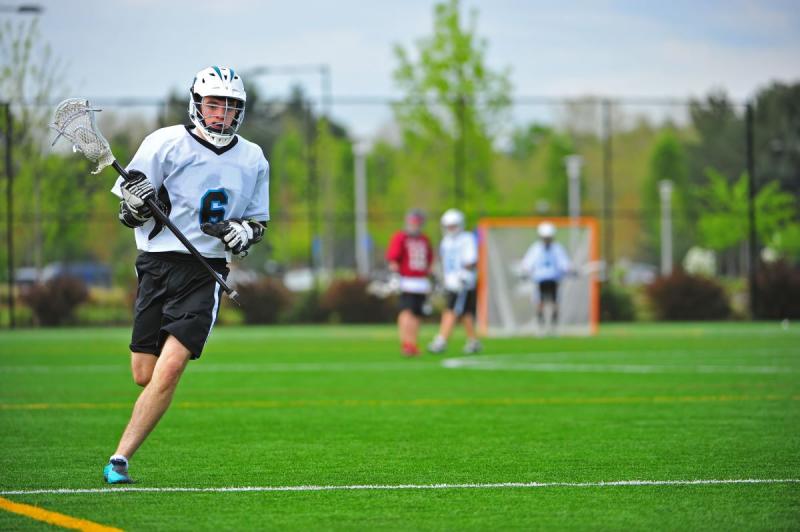
Reputable camps publish detailed daily schedules and curriculum to transparently showcase their offerings. Look for a balance of technical drills, physical conditioning, position-specific training, gameplay, film analysis, guest speakers, and optional activities.
Introductory curriculums focus more on fundamental stick skills through repetition and contests. Intermediate/advanced camps emphasize tactical knowledge via chalk talks, video analysis, and complex game situations. Competition and scrimmages should escalate throughout camp to test skills.
Also note what equipment is required or provided, rules for conduct, and disciplinary processes. Overnight camps will outline evening social activities. Quality instruction maximizes time on field with minimized downtime between sessions.
Evaluate Competition Level
Iron sharpens iron – the level of players your child will compete against is hugely important. Elite overnight camps advertise roster spots reserved for All-Americans or Division 1 commits. This caliber of competition elevates skills and mental toughness to the college level.
Intermediate camps may group players by grade and ability after evaluations. Newbies should avoid camps packing All-Stars onto the top field while beginners wallow on lesser fields. Drills, scrimmages, and games pitting players of similar motivation and ability foster maximum growth.
If a camp doesn’t indicate player experience levels, request sample camper rosters from past summers with schools, teams, stats, or rankings. Better athletes make everyone around them better.
Read Reviews From Past Campers
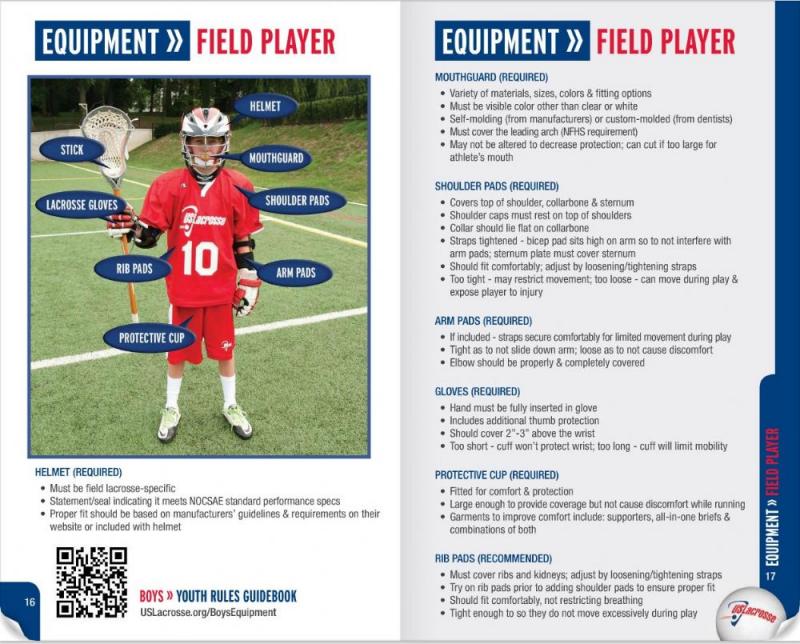
There is no better testimonial for a lacrosse camp than directly hearing from past campers and parents. Most camp websites prominently feature reviews, social media posts, and ratings collected each summer. Pay special attention to reviews from last year’s actual session if available.
Look for consistent themes touching on value, instruction, competition, amenities, and intangibles liked about the camp. Beware vague reviews mentioning only that a child “liked it” or “had fun.” Subpar experiences are sometimes whitewashed this way. Specific, thoughtful reviews are the best indicator of real experiences.
Facebook groups for lax parents can provide candid parent discussions on various camps. External review sites like YouthCamps4Youth.com also compile multi-year camp ratings. Take time to research what both past campers and parents have to say.
Ask Trusted Coaches For Recommendations
Speaking with coaches familiar with your child’s skills and personality can provide valuable perspective on aligning goals with the best camp options. Local club and school coaches interact with various summer programs and staff each year.
Ask directly if they recommend any specific overnight or day camps given a child’s current ability level. Coaches may suggest under-the-radar programs that offer quality training without the hype of big-name camps. They can also advise which elite camps have cultures promoting values versus entitled behavior.
Discuss the specific skills and concepts your athlete most needs to improve. Tailored coach recommendations based on knowing your child’s weak spots can shortlist suitable camps for further research.
Ensure Safety and Supervision
When sending a child away to camp, especially overnight, parents rightfully prioritize health, safety and wellbeing. All accredited camps must comply with state and American Camp Association guidelines for staffing, emergency procedures, dispensing medication, and more.
Look for thorough COVID-19 mitigation strategies encompassing vaccination, testing, symptom checks, sanitization, ventilation, and mask protocols. Camp nurses should be on-site 24/7 for emergencies. Food allergies, physical limitations, and other health needs should be accommodated.
Overnight camps must have live-in counselors monitoring dorms and structured social time limiting free unsupervised periods. Verify background checks for all staff and volunteers. Finally, ensure cell service for contacting parents during limited phone times.
Ask About Goal-Setting and Follow-Up
The best lacrosse camps empower each athlete to define and achieve individual goals for skills, knowledge, and personal growth beyond just having fun. Look for programs asking participants to set written goals for themselves prior to attending.
There should be dedicated goal review sessions on the final day where players self-assess progress made. Coaches can provide personalized evaluations summarizing strengths, areas for improvement, and keys to off-season training.
Quality post-camp follow-up resources like skill circuits, film links, reading lists, or coaching contact info maintain enthusiasm. Positive goal achievement and detailed post-camp feedback make parents feel the time and money invested was maximized.
Choosing the best lacrosse camp for your young athlete is an exciting step toward taking their game to the next level. Consider your child’s maturity, skills, and goals and extensively vet programs for safety, coaching, competition, and past reviews. With a thoughtful selection process, you can set your young player up for a transformative camp experience yielding lacrosse memories for a lifetime.
Look for Skill Development Focus
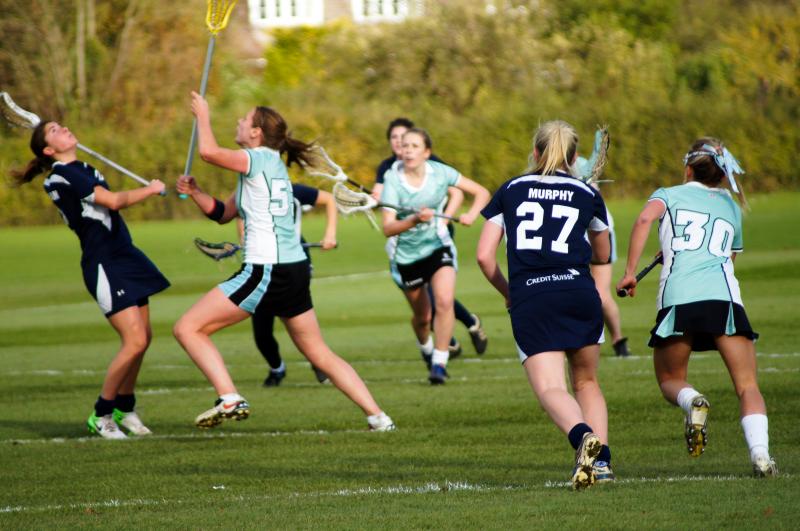
With countless lacrosse camps promising to take your child’s game to the next level, it’s critical to evaluate each program’s specific approach to skill development. Avoid camps treating summer as just “lacrosse daycare” with minimal instruction between scrimmages. Seek out dedicated training tailored to your young athlete’s current abilities and needs.
For beginners, look for camps intensely focused on building a solid technical foundation across all fundamentals. Drills should concentrate on proper mechanics for passing, catching, cradling, scooping ground balls, and shooting form. Footwork, stick protection, and basic defensive positioning are also key.
Intermediate players need more advanced stick work like split dodges, face dodges, and two-man games to create space and beat defenders. Position-specific skills like riding, picking, and sliding also come into play. Look for intense repetitive drills building muscle memory.
Advanced athletes pursue elite skills like backdoor cuts, pick and rolls, inverted dodges, and alley dodges at top speed against top defenders. Specialized goalie and faceoff training creates game-changing specialists. Skills are honed through complex game situations and intense small-sided scrimmages.
Seek High Repetition Drilling
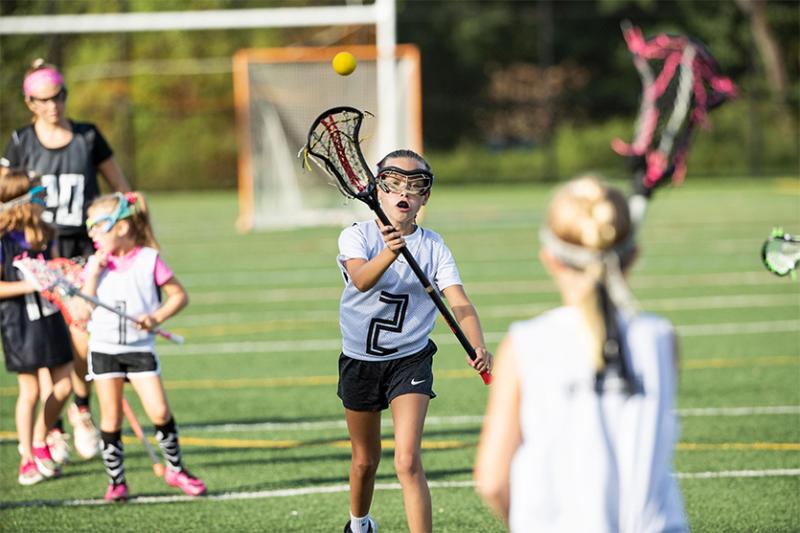
“Perfect practice makes perfect” is especially true in lacrosse skill building. Excellence comes from focused, repetitive drilling that grooves proper technique into muscle memory. Quality camps emphasize mastery through high volume reps versus just scrimmaging.
Look for detailed daily schedules showing 60-90 minutes of intensive sticks skills stations like grids, circles, triangles, and gauntlets. Drills should work from lines to small groups to full field. Reps start slow and controlled, then accelerate to game speed.
Younger players may repeat a specific skill like scooping or dodging hundreds of times in a session. Veteran campers may run late-night shooting circuits after hours. High repetition under coach supervision ingrains skills for life.
Verify Position-Specific Training
Beyond overall stick skills, each lacrosse position requires its own specialized tactics and techniques. Middies, attackmen, defenders, goalies, and faceoff specialists all fill radically different roles requiring tailored training.
Look for camps offering dedicated coaching focused on each position’s unique skill sets and mentalities. Defensemen need aggressive approaches to checking, positioning, and communicating. Goalies require meticulous technical and film study. FOGOs train extensively on grip, counters, and draw moves.
Ideally each position group separates for at least 30-60 minutes daily working on skills and concepts exclusive to their role. This targeted development accelerates game understanding and performance.
Evaluate Skill Assessment and Progress Tracking
To maximize growth, players need an accurate understanding of current ability levels and objective measurement of improvement over time. Quality camps perform thorough evaluations during opening days analyzing all aspects of fundamental skills.
Coaches observe drills and scrimmages, take notes, and chart progress on skills like dodging, shooting, footwork, and 1v1 defense. Players receive report cards grading current proficiency with qualitative notes on strengths/weaknesses.
End-of-camp re-testing tracks progression across core metrics, validated through coach and player review. Pre and post data prove the efficacy of training and provides a blueprint for continued improvement.
Look for Game Film Review
Seeing personal gameplay on film is an invaluable accelerant for developing lacrosse skills and IQ. Instant replay doesn’t lie – campers can clearly see technical flaws and poor decision-making in action.
Look for camps using game film review sessions at least 2-3 times during programs. Coaches break down positioning, mechanics, and strategy in clips of scrimmages or full games. Players see exactly how and where to improve.
Digital video and stats analysis offer data-driven insight into skills like shooting accuracy, pass completion percentage, and ground balls. Hard metrics keep players focused on growth.
Ask About College Recruiting Guidance

For advanced high school players, honing skills is partly about getting recruited to play in college. Quality camps provide guidance on showcasing abilities to college coaches through film, profile building, and networking.
Reputable overnight camps attract hundreds of college scouts and coaches each summer watching elite tournament games. Players learn how to self-promote and directly engage recruiters looking for next year’s freshman class.
Camp staff should advise athletes on crafting skills profiles, contacting coaches, and the importance of academics and character in recruiting. Good mentorship makes a major recruiting difference.
Evaluate Speed and Conditioning Focus
Superior lacrosse skills mean nothing without the athleticism and stamina to perform at high speed against tough competition. Multidirectional speed, acceleration, change of direction, and conditioning separate the truly skilled.
Look for camps dedicated to improving these athletic pillars through targeted drills and training. Speed ladders, cone drills, sand work, and interval running build the physical engine to power advanced skills against game pressure.
Weight room access for strength training plus coaching on acceleration mechanics, deceleration, and backpedaling refine the complete athletic package. Skills only flourish with proper physical foundations.
Seek Out Elite College and Pro Coaches

Nothing accelerates player development like learning directly from coaches who’ve excelled at the game’s highest levels. Look for camps staffed by current and former pro players and coaches.
College coaches intimately understand exactly what it takes to thrive on the field and in the recruiting process. Hall of Fame pros know how to build skills that set apart the greats. Their presence raises competitive intensity.
Beyond world-class instruction, big-name coaches inspire campers to maximize potential. Players gain priceless mentors invested in their skill growth and character.
Evaluate Coach Access and Hands-On Correction
Even the best drills lose effectiveness without consistent quality feedback from coaches fixing flaws in the moment. The camp’s coach-to-player ratio determines individual attention.
Look for at least 1 coach per 8 players on the field and dedicated position coaches. They should circulate constantly providing hands-on technique corrections tailored to each player. Video review shows what to improve, direct coaching ingrains it.
Younger kids especially need patient guidance and encouragement while struggling to master new skills. Ensure coaches have the bandwidth to mentor every player through struggles.
Make Sure Fun Remains Integral
For youth athletes especially, retaining passion and excitement for lacrosse amidst intense training is key. Look for camps infusing entertainment, competition, and peer bonding throughout the program.
Progressive contests and games incent skill growth with fun at each level. Camp-wide leaderships rewards encourage teamwork. Daily teambuilding activities foster lasting friendships amplifying enjoyment.
Vibrant coaches committed to each player’s emotional needs as much as skills keep things positive. Training hard and playing joyfully accelerates development.
When selecting a lacrosse camp for your young athlete, prioritize programs purpose-built to develop position-specific skills through high repetition drilling and expert coaching. Leaving camp with expanded abilities, objective improvement metrics, and a lifelong love of lax means choosing wisely.
Find Camps with College Recruiting Help
For top high school lacrosse players with college athletic aspirations, selecting summer camps with robust recruiting guidance and exposure can make a major difference. Quality camps provide actionable assistance for attracting college program interest.
Look for camps hosting hundreds of college coaches on-site evaluating elite tournament games and prospect scrimmages. Staff should actively connect qualified players with the right coaches based on skills, academics, and character.
Recruiting seminars should cover optimizing highlight films, skill profiles, contacting coaches, campus visits, and understanding NCAA eligibility. Avoid camps making empty promises – seek tangible recruiting help.
Look for Maximum College Coach Attendance
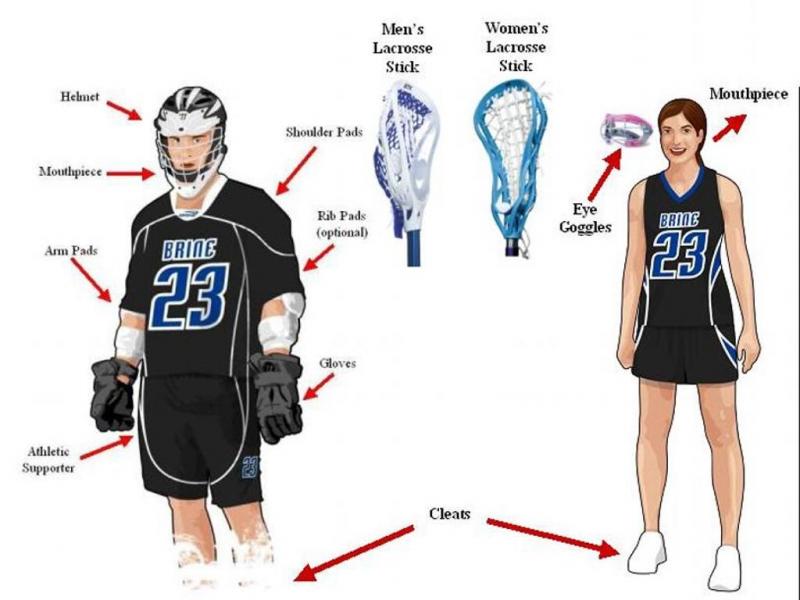
The more college coaches actively scouting a camp’s competition and drills, the better exposure for potential recruits. Large overnight camps attract hundreds of college recruiters across all NCAA divisions throughout the week.
Ask prospective camps directly how many coaches attended previous years and from which colleges, conferences, and divisions. Look for at least 50+ college staff ranging across D1, D2, D3.
Maximum exposure means performing well in front of the right coaches. Nationally respected camps deliver volume and quality of recruiting eyeballs.
Ensure Scouting and Prospect Games
Camps serious about recruiting go beyond just games and drills to facilitate prospect evaluation. Look for dedicated scout teams composed of uncommitted rising seniors playing exhibition games.
Prospect scrimmages pit top players against each other in a competitive yet controlled environment designed for evaluation. Staff film these scrimmages from an elevated angle capturing NCAA-required game footage.
Coaches seeking new recruits rely on camps to assemble and showcase verifiable talent. Ensure prospects get quality game reps on film before coaches.
Ask About Recruiting Profile Building
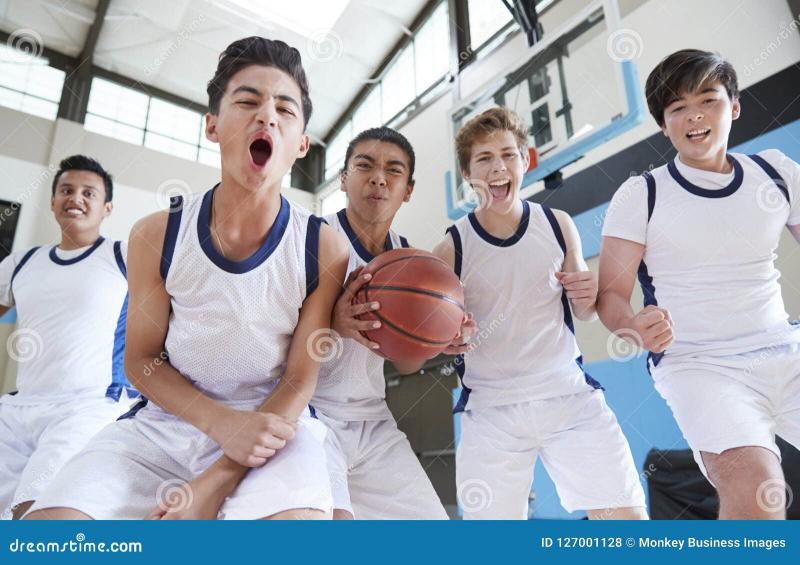
To attract college interest, players must proactively sell themselves by crafting lacrosse resumes highlighting skills, academics, and character. Quality camps provide specific guidance on building profiles.
Expect training on creating skills highlight reels following NCAA recruitment video regulations. Staff should advise optimizing online profiles and contacting college coaches professionally.
Campers learn to quantify on-field abilities with key stats for shots, points, ground balls, faceoff percentage, etc. Academics and community involvement tell the full story.
Look for Position-Specific College Coaching
The recruiting path differs significantly across positions – top college programs want elite specialists in addition to well-rounded midfielders. Position-based recruiting guidance is vital.
For example, FOGOs get coached on perfecting techniques college teams require like plunger grips or knee down starts. Goalies learn how communication and clearing abilities are valued.
Dedicated coaching for faceoff, goalie, defense, LSM, and SSDM needs focuses prospects on developing niche skills coveted in college recruiting.
Verify Lacrosse IQ and Character Coaching
Raw athleticism alone won’t cut it in college lacrosse. Recruits also need high lacrosse IQ, intangibles, and proven character to contribute. Quality coaching develops the full package.
Classroom sessions should teach principles of vision, anticipation, spacing, two-man games and more. Leadership, integrity, and grit are emphasized daily.
College coaches evaluate the complete player – mind, body and heart. Elite camps produce recruits ready to positively impact programs on and off the field.
Ensure Feedback from College Coaches
The recruiting roadmap starts with understanding exactly where a player’s current skills and profile stand with college coaches. Quality evaluations set the foundation.
Look for opportunities to speak directly with college staff after prospect games and drills. Coaches should provide candid feedback on areas for improvement to play at the next level.
Don’t just trust unknown camp staff. Face-to-face conversations with real college coaches build relationships and offer priceless recruiting insights.
Look for Recruiting Seminars and Mentoring

Navigating the complex NCAA recruiting process requires guidance from experts. Recruiting seminars should cover the entire process start to finish.
Expect coaching on highlight film best practices, contacting coaches, questions to ask on visits, social media presence, eligibility information and more.
Former college players on staff can provide vital perspective and advice. Recruiting mentoring gives athletes and parents the information edge.
Ask About Post-Camp Recruiting Follow-Up
The recruiting quest doesn’t end when camp does. Quality programs provide detailed post-camp packages summarizing player evaluations, suggested development, recruiting rankings, and coach contact information.
Digital report cards capture skills metrics, coach comments, and comparisons against recruiting criteria. College contact lists target outreach.
Post-camp follow-up and continued mentorship keeps players focused on elevating their recruiting game.
Confirm Alignment with Personal Recruiting Goals

Every athlete’s recruiting priorities differ – confirm camps actually fit individual needs and vision. Academics, playing time, location and cost all play major roles.
Some players chase Division 1 glory, while others seek specialized programs or certain majors. Have open discussions about finding the optimal college fit based on what matters most.
The best camps guide and facilitate without pressuring. Choosing wisely leads to recruiting and college lacrosse success.
For youth lacrosse players seeking to play at the next level, identifying summer camps offering premier college recruiting assistance can make a major impact. Look for staff access, prospect scouting, skills evaluations, seminars, and post-camp follow-up delivering results.
Search for Specialty Camps Like Goalie or Face-off
As a parent of an aspiring young lacrosse player, you want to provide your child with the best opportunities to improve their skills and get exposure to college coaches. Attending a summer lacrosse camp can be a great way for youth athletes to take their game to the next level. But with the wide variety of camp options available, how do you choose the right program?
First, consider your child’s specific position and lacrosse strengths. While many camps offer a general lacrosse curriculum, others specialize in training goalies, face-off specialists, offensive players or defenders. Search for camps that align with your child’s position so they can receive focused, intensive training.
For example, Gamebreaker Lacrosse operates specialty camps for goalies and face-off specialists. Their Goalie Wars camp provides intensive goalie training, while Face-Off Academy focuses on developing skills like grip strength, counters, positioning and face-off moves. Attending a specialty camp allows young athletes to take their positional play to the next level under the guidance of expert college coaches.
Evaluate Coaching Staff and College Connections
Pay close attention to the coaching staff at any camp you consider. Look for camps with instruction from college coaches and former college or professional players. Their experience playing and coaching at elite levels can provide invaluable guidance for ambitious youth players.
For instance, Nike Lacrosse Camp in Pennington, NJ brings in top college coaches like the head coach from Penn State to work directly with campers. Exposure to different coaching philosophies helps young athletes develop new skills.
College connections are also key. The best camps have strong relationships with college lacrosse programs, which means increased access to recruiting for camp participants. At recruiting showcases held at camps like Maverik Showtime and Hotbeds, college coaches from top NCAA programs scout prospects.
Compare Curriculum and Offerings
Evaluate each camp’s lacrosse curriculum and offerings. Look for a mix of positional instruction, drills, competition, game play and video review. For well-rounded development, players need technical training, game experience against top competition and coaching to correct mistakes.
Multi-day overnight camps like the Pennington Lacrosse Camp give youth athletes the full immersion experience. With lodging, meals and activities provided, players can focus on improving lacrosse skills while also meeting new friends.
Camps also differ in areas like strength training, film study and goalie-specific offerings. Compare options to find a program tailored to your player’s needs and goals.
Read Camp Reviews
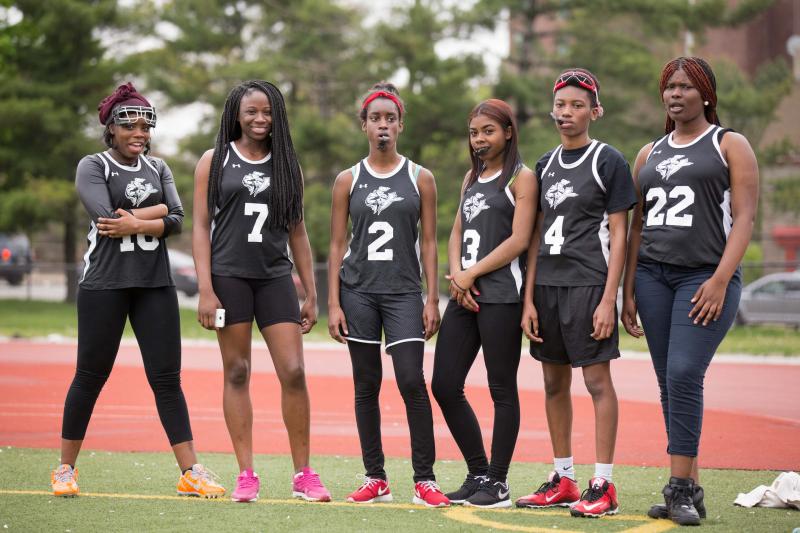
One of the best ways to evaluate a lacrosse camp is to read reviews from past participants and parents. Sites like YouthSports and Next College Student Athlete feature camp reviews that provide transparent feedback on the instruction, college recruiting access, facilities, food and more.
For Gamebreaker Lacrosse Camp, reviews consistently praise the high level of instruction from college coaches. One parent wrote: “My son attended the Face-off Academy camp and his skills improved dramatically in just a few days. The coaches were so passionate about teaching proper technique.”
Reviews help parents vet lacrosse camps to find programs that provide an invaluable experience for youth athletes. Don’t just take the camp’s word for it—read reviews to understand the on-the-ground perspective of past campers.
Consider Cost and Convenience
The cost and location of lacrosse camps can vary widely. Overnight camps often start around $500 while day camps may be $250 or less. Take into account travel expenses too for more distant options.
While cost is a factor, the quality of instruction and college recruiting access generally make camps a wise investment for serious players. Focus on choosing the best program for your athlete regardless of cost.
Convenience is also key. Look for camps within driving distance so you don’t have to worry about airfare. For a commuter option, local day camps like Maverik Showtime provide strong training without the hassle of overnight lodging.
Start Research Early
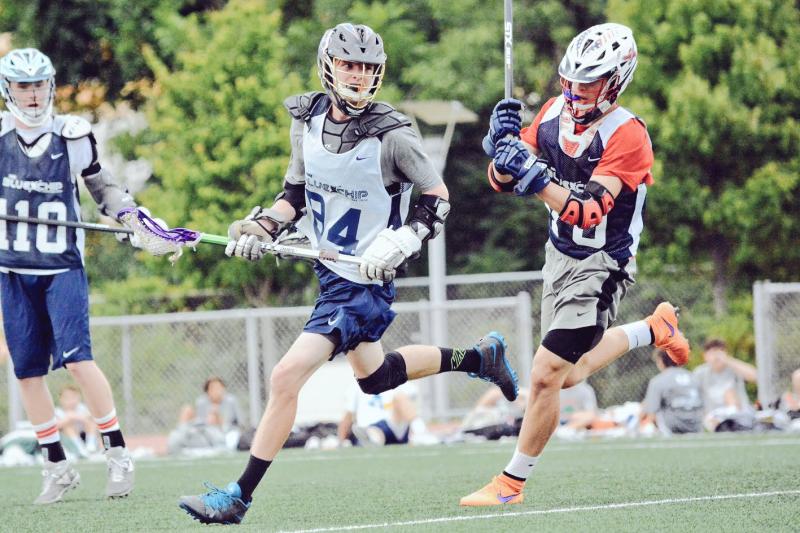
Lacrosse camps fill up quickly, so start researching options 6-12 months in advance. Once you identify one or more stellar programs for your player, reserve a spot right when registration opens.
By seeking out specialized camps with great coaching, college ties and reviews, you can give your young athlete the chance to take their game up a notch. With focused lacrosse immersion and exposure to elite instruction, a summer camp can be a springboard for youth players with big dreams.
Make Sure Camp Fits Athlete’s Age and Ability
Finding the perfect lacrosse camp for your young athlete is about more than just selecting any program. To maximize their experience and development, it’s essential to match them with a camp that fits their age and skill level.
Most camps divide by age with groups like 10U, 12U, 14U, etc. Be sure to place your child in the group that aligns with their age as of September 1 of the camp year. You want them competing against athletes who are the same age rather than at a disadvantage against older players.
Within each age group, camps often have multiple tiers based on ability. For instance, Nike Lacrosse Camp offers elite, premier and core options. Elite is geared toward Division I college-bound athletes while Core welcomes new players.
Accurately assessing your player’s abilities and having them participate in the right tier is crucial. A camp that’s too advanced risks injury and burnout. One that’s too easy fails to push athletes out of their comfort zone.
Consider Current Skill Level
Honestly evaluate your child’s lacrosse skills compared to peers. If they dominate on a local rec league team but haven’t faced statewide competition, a mid-tier camp is a safer bet. This challenges them while minimizing risk of feeling overwhelmed.
For a player with proven advanced skills competing at the club or high school level, an elite tier camp delivers the intensive training they need from top coaches.
Get Input from Coaches
Your child’s coaches have observed their skills in action over time. Ask for an assessment of what tier camp is the best match for your player’s ability. Include club and school coaches to get comprehensive input.
For example, if your daughter’s school coach says she has the skills to thrive in an elite camp but her club coach disagrees, consider a mid-tier option to start. You can always advance her in subsequent years if she excels.
Consider Position
Lacrosse requires very different skill sets for goalies, offensive players, defenders and face-off specialists. Make sure to evaluate your player’s abilities specifically for their position.
A defender who is dominant with stick checking but average in clearing and slides may be better suited for a mid-tier camp instead of elite. Checking with position coaches helps accurately gauge ability.
Evaluate Maturity Level
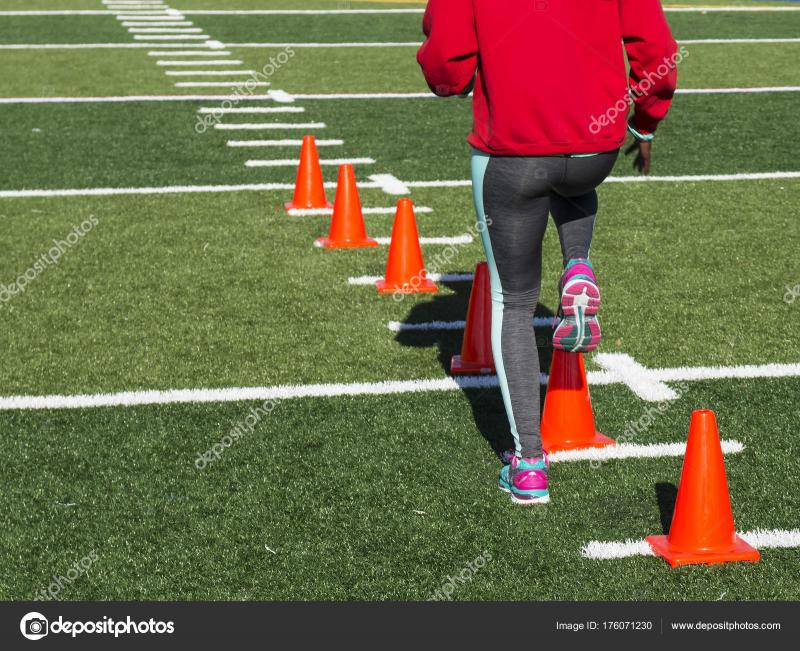
For younger athletes around 8-10 years old, maturity level can be just as important as lacrosse skills. Elite camps involve college-style practices and competition, demanding a high level of focus and discipline.
If your player is easily distracted or overwhelmed by harsh coaching, a core or mid-tier camp with more instructional focus may suit them better at a young age, even if their skills are advanced.
Don’t Overestimate Skills
Many parents overestimate their child’s abilities or worry about the social stigma of placing them in anything but the top tier. But it’s better to have your player feel challenged yet comfortable than in over their head.
Be honest about their capabilities relative to the description of each camp tier. Give them the confidence boost of shining in the right group rather than struggling in one that’s mismatched.
Trust the Process
Place your athlete where their skills dictate now, but rest assured they can advance to more elite tiers in coming years as their game progresses. Lacrosse camps build on each other over time.
Patience and gradual progression ensure athletes expand skills while avoiding frustration. Not every 12-year-old needs to be in the elite tier—but they will get there if they keep grinding.
With an accurate assessment of your player’s age and abilities, you can find a camp that offers the ideal fit. Keep an open mind, seek objective input from coaches and focus on their long-term development. Before you know it, that core camper will be ready for the college-level challenge of elite.
Read Past Camper Reviews and Testimonials

One of the most valuable resources when evaluating lacrosse camps is reviews from past campers and their parents. By reading first-hand testimonials, you gain insightful perspectives on the camp experience that aren’t available from brochures or websites.
Look for lacrosse camps that make reviews easy to find, such as featuring excerpts on their homepage. Third party sites like YouthSports also compile camp reviews. Spend time reading both positive and constructive feedback.
Look for Common Themes
As you evaluate reviews of a given lacrosse camp, look for common themes that emerge. Do almost all reviews reference the amazing college-level instruction? Do they consistently praise the welcoming atmosphere and new friendships formed?
Seeing similar feedback across multiple reviewers is a great sign. This indicates the camp reliably delivers positive experiences year after year. However, also note any criticisms that repeatedly arise.
Get Insight on Coaches
Camp reviews let you hear directly from athletes about the quality of the coaching staff. Look for feedback on their lacrosse expertise, ability to demonstrate skills, patience and coaching style.
For example, reviews of Nike Lacrosse Camp often praise the excellent training from college coaches. As one parent wrote, “The coaches were so inspiring and really pushed my daughter outside her comfort zone. Her skills improved dramatically.”
Learn About College Recruiting
If college lacrosse recruiting is a priority, pay attention to what past campers say about access to coaches. Do reviews back up claims made on the camp website about recruiting?
Reviews for recruiting showcases like Maverik Showtime confirm that college coaches from top programs actively scout and connect with players during camp. This visibility can be invaluable.
Evaluate Facilities and Lodging
For overnight camps, on-site lodging and facilities are important. Read reviews to get candid perspectives on dorm cleanliness, quality of fields, comfort of beds, healthy meal options and more.
If multiple reviews complain about run-down accommodations, that’s a red flag. You want your athlete in a safe, clean environment off the field as well as excelling on it.
Check Responsiveness to Concerns

Even great camps receive some criticisms. Check how the camp staff interacts with parents raising concerns in reviews. Do they apologize for any issues and vow to improve the problem areas?
Responsiveness to feedback says a lot about how much the camp values participants’ experiences. Everyone has a bad day now and then. You want to see accountability.
Look for Unbiased Opinions
Some lacrosse camps provide incentives like discounts for submitting positive reviews. Make sure to read reviews on third party sites, which offer more unbiased perspectives. A mix of raving and constructive reviews is ideal.
By taking the time to thoroughly evaluate camper testimonials, you gain valuable first-hand insight into the program’s quality. Let the athletes and parents who’ve attended guide you in choosing the best camp for your young player.
Ask About Safety Protocols and Supervision
When evaluating lacrosse camps, an essential area for parents to assess is safety. You’re entrusting coaches and staff with your child’s well-being, so be sure to ask questions about supervision, training and protocols.
Overnight camps in particular require close monitoring of campers. Ask about resident counselors, training on concussion protocols, boundaries on contact in practice, lightning plans and more.
Inquire About Staff Training
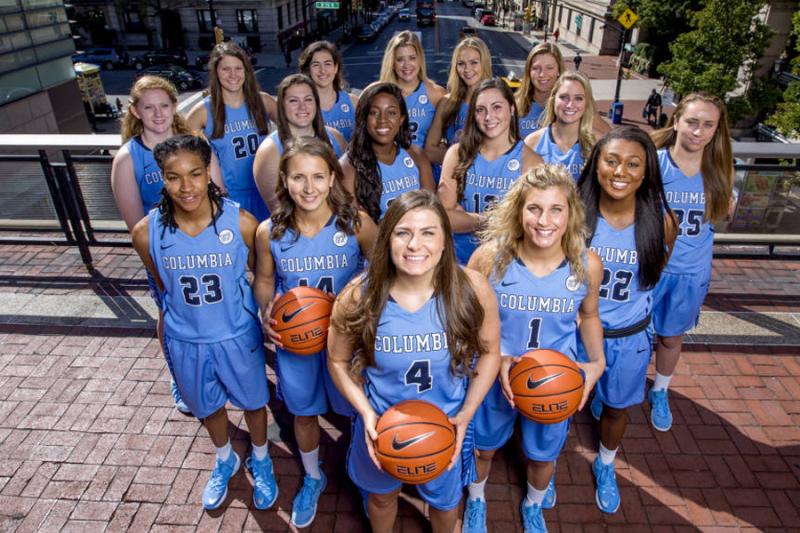
What specific training does the camp staff receive around safety policies, emergency protocols, homesickness and behavior issues? Look for thorough training regimens that exceed basic requirements.
For example, staff at Maverik Showtime complete a 30+ hour training program including CPR, concussion response and fostering a positive camp culture. This instills preparation to prevent and respond to issues.
Ask Counselor to Camper Ratios
Especially for younger camps, ask about the number of counselors relative to the number of campers. Look for ratios like 1 counselor per 5 campers ages 12 and under. This ensures proper supervision.
Overnight camps should also have resident counselors to make sure someone is monitoring campers at all times in dorms. Verify specific ratios for daytime and overnight.
Review Concussion Protocols
Given the contact nature of lacrosse, concussions are an inherent risk. Ask camps about specific protocols in place for concussion screening, response to suspected concussions and return to play timelines.
Policies should align with best practices like immediate removal from play if concussion suspected and medical clearance before returning.
Inquire About Weather Plans
Summer heat and potential thunderstorms pose safety hazards. Ask camps how extreme weather is handled to avoid heat illness, dehydration and lightning danger.
Look for designated indoor cooling/warming areas, hydration breaks, reduced gear in heat and clear lightning protocols suspending activities until safe.
Focus on Injury Prevention
What injury prevention steps does the camp take in training and competition? Look for efforts like knee savers in goalie drills, monitoring contact intensity and mandatory rest days.
Coaches with years of experience working with youth athletes know how to develop skills while reducing preventable injuries.
Check Background Screening
Camps should screen all staff including mandatory criminal background checks. This ensures the people supervising your child don’t pose a threat.
Ask specifically about screening procedures. Thorough vetting is essential, especially for camps accepting young kids.
By proactively asking safety questions, you gain peace of mind that camp staff make your child’s well-being the top priority. Look for lacrosse camps that share detailed policies that go above minimum requirements.
Compare Lacrosse and Multi-Sport Options

When looking for summer camps for your kids, lacrosse and multi-sport camps are both great options to consider. As a parent, you want to find a program that will be fun and engaging for your child, while also helping them develop athletically. So how do you decide between a sport-specific camp for lacrosse versus a multi-sport program? Here are some key factors to weigh when making this choice.
Focus of Training
One of the biggest differences between lacrosse and multi-sport camps is the focus of training. At a lacrosse camp, all activities will be centered around developing skills for lacrosse – stick handling, shooting, defensive techniques, positional play, etc. The instructors will be lacrosse coaches focused on the intricacies of the sport. This targeted training can really accelerate a player’s development in lacrosse over the course of a summer.
On the other hand, multi-sport camps offer kids the chance to try a variety of different sports like soccer, basketball, volleyball, and more. The focus is on fundamental athletic skills like speed, agility, coordination, and sportsmanship. So athletes get exposure to different activities rather than intense training in one sport. This can be great for trying new sports or enhancing general athleticism.
Position Specialization

Most lacrosse camps will include position-specific instruction. For example, midfielders, attackers, defenders, and goalies may break into separate groups for drills tailored to their unique roles on the field. This allows players to develop the specialized technical and tactical skills required for excelling at their position.
Multi-sport camps generally do not delve into this level of position specialization. The activities are more generalized to develop well-rounded athletic skills. So athletes get a taste of different positions without intensely focusing on one in particular.
Style of Coaching
The coaching approach often differs between lacrosse and multi-sport camps. Lacrosse camps usually have a more serious, competitive atmosphere. The lacrosse coaches are intense and focused, pushing players to correct mistakes and reach peak performance. The culture centers around proper skill development and taking the game seriously.
Multi-sport camps tend to have a more laidback vibe. With a recreational focus on fun over competition, the coaching seeks to keep things lighthearted. Athletes are encouraged to try new things and enjoy themselves first and foremost. The pressure is low and the environment more supportive.
Social Experience
When considering the social component, single sport camps like lacrosse foster a stronger sense of community and bonding. Athletes connect over their shared passion for the sport. Friendships form as teammates work closely together throughout camp. Players get to know each other well on and off the field.
Multi-sport camps offer exposure to a more diverse group of athletes. Kids interact with various friend groups across the different activities. While the social circles may be broader, the bonding over any one sport is less intense. Some kids thrive on forging deep lacrosse-focused connections, while others appreciate the variety.
College Recruiting
For high school players, the opportunity to get exposure for college recruiting is often a major factor. Lacrosse showcases provide a platform to demonstrate skills and get noticed by college coaches. The staff have expertise to help players navigate the recruiting process for lacrosse specifically.
Most multi-sport camps do not cater to recruiting. The exceptions are programs run by coaches at elite colleges, like perennial NCAA powerhouses. These can still offer some recruiting exposure across multiple sports, but not to the degree of a lacrosse showcase.
Cost Comparison

On average, the cost of attending a lacrosse camp is higher than a multi-sport program. The increased specialization and recruiting access come with a bigger price tag. Equipment costs may also be bundled into lacrosse camp fees. Multi-sport camps can be several hundred dollars cheaper on the whole for the basic level of instruction.
That said, costs can vary widely. Plenty of budget-friendly multi-sport options exist, just like some higher end recruiting showcases run upwards of $1000. Do your homework on pricing structures for the specific programs you are considering.
Key Takeaways
When deciding between lacrosse versus multi-sport camps, first consider your child’s goals and preferences. Kids focused on excelling in lacrosse will get more out of a specialized program tailored to skill development in their sport. Athletes looking for a fun recreational experience may enjoy the variety of activities in a multi-sport camp.
Talk with your child about what type of environment they will thrive in – more serious versus more laidback. Also discuss what social experience appeals to them and review costs together. Take into account any recruiting aspirations if relevant. With an open conversation about priorities, you can zero in on summer camp options suited to your child’s needs.
Both lacrosse camps and multi-sport programs have their unique advantages. Assess each approach carefully, and you’re sure to find the right fit to keep your young athlete happy, healthy and performing their best.
Factor in Transportation Needs and Logistics

Selecting the right lacrosse camp for your child goes beyond just the on-field programming. An important consideration is transportation and logistics – how you will get your child to and from camp each day. Location and commuting time play a major role in the experience. Here are some key factors around transportation and logistics to keep in mind when choosing a lacrosse camp.
Commuting Distance
First, look at the driving distance to prospective camps from your home. Is it less than 30 minutes or more than an hour each way? Long commutes not only take considerable time out of the day, but can also impact energy levels for participating in camp activities. If a camp is too far away, it may not be sustainable for the duration. Proximity is key for a smooth camp logistics experience.
Overnight vs Day Options
For camps farther away, explore if overnight accommodations are offered. Many lacrosse camps have a residential program with housing and meals included. While more expensive, this eliminates travel time and provides built-in supervision. If your child is ready for an overnight experience, it opens up geographic possibilities.
If commuting is preferred, look for lacrosse camps within a reasonable radius from your home. Most day camps run from 8am to 4pm with drop-off and pick-up windows. See if the schedule aligns with your work hours and other family activities.
Transportation Provided
Determine if the lacrosse camp offers busing or any transportation assistance. Some programs arrange for shuttle services from central meeting points to camp. Others coordinate carpools with nearby families. Transportation offerings reduce the commuting burden on parents.
If the camp does not provide transportation, gauge the effort required on your end. You may need to build extra time into your schedule for dropping off and picking up each day.
Parking and Access
For driving your child to camp, assess the parking situation. How convenient is it to get in and out of the facility? Are there fees involved? Is the pickup/drop-off process smooth or chaotic? Scoping this out in advance will make commuting less stressful.
Also look at accessibility via public transportation if that is an option in your area. Some urban camps may be accessible by bus or train routes, which can simplify logistics.
Multiple Session Options
See if the lacrosse camp offers more than one session over the summer. For example, there may be a June session, a July session, and an August session available. With multiple smaller timeframes, you can choose the most convenient week(s) that fit your schedule.
Fewer weeks of camp may also help lessen the transportation burden over a whole summer. Younger athletes may do better starting with a shortened camp experience.
Coordinate with Other Camps

Look at coordinating schedules if enrolling your child in multiple summer camps. For instance, sign up for lacrosse camp one week and outdoor adventure camp the next. Trying to commute to different camps on alternating days gets complicated quickly.
Choosing camps in the same general area can allow for joint drop-offs or pick-ups. Streamline schedules whenever possible.
Plan Transportation Early
Transportation logistics are often an afterthought when choosing camps. But locking in details early takes away a lot of “day-of” stress. Once enrolled, contact the camp to understand all commute instructions and options.
Talk through scheduling with work colleagues or family members who may assist with driving. Make back-up plans for transportation support if needed. Taking time upfront to organize logistics goes a long way towards a smooth camp experience.
Key Takeaways
Getting your child to and from lacrosse camp requires forethought and preparation. Commuting distance, transportation offerings, parking, session schedules and coordinating with other camps all impact logistics. Weigh options carefully before registering to ensure a reasonable transportation plan.
With deliberate planning around location, timing and driving help, transportation does not have to be an obstacle. Set your child up for success by taking into account these important logistical considerations when selecting their ideal lacrosse camp.
Look for Camps with Fun Off-Field Activities
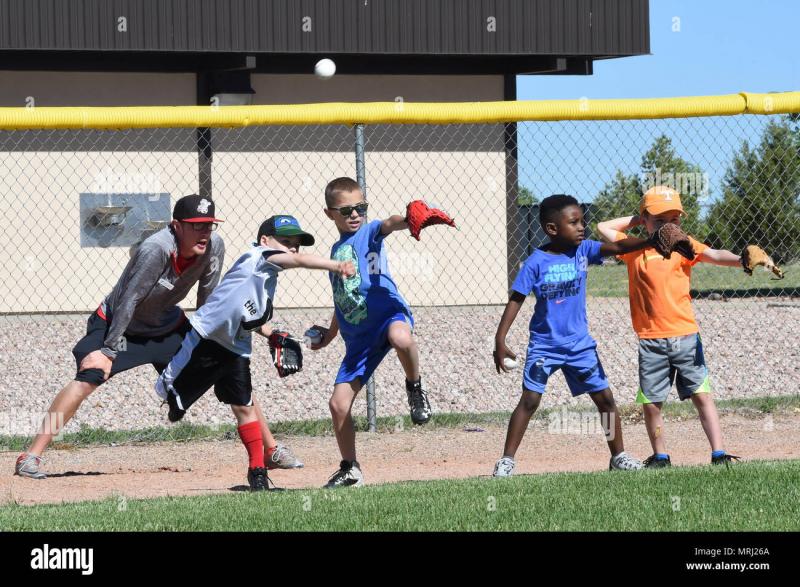
While lacrosse skill development is the primary focus, the best camps also incorporate off-field activities into the experience. The right mix of fun programming outside of drills and scrimmages is key to keeping kids engaged. As you evaluate lacrosse camp options, look for ones that provide entertainment and recreation off the field.
Down Time Built Into Schedule
The camp schedule should include some down time for athletes each day. Following multiple intense lacrosse sessions, players need a mental and physical break. This gives them a chance to unwind, refuel and reset for more training.
Look for at least 1-2 hours of activities not centered around lacrosse drills. Kids will appreciate scheduled time to relax and have fun with friends.
Range of Age-Appropriate Activities
Seek out lacrosse camps that offer a diverse mix of off-field options appropriate for the age range. For younger kids, games and crafts focused on creativity and teamwork are ideal. Older players may enjoy friendly recreational competitions like dodgeball or basketball tournaments.
A camp with swimming, movies, obstacle courses, cookouts and other entertainment will keep various age groups happy after intense field time.
Emphasis on Unstructured Bonding
Look for camp programming that allows plenty of unstructured bonding and socializing. This gives players a chance to make new friends beyond time spent training together. Having meals, game rooms and free time as a team lets relationships grow more organically.
Kids often remember the locker room jokes and late night hangouts even more than drills. An ideal lacrosse camp fosters this type of personal connection.
Special Events and Trip Days
See if the lacrosse camp has any dedicated off-site trip days built into the program. Outings to sporting events, amusement parks, movies, arcades or other attractions offer a fun change of pace. Campers of all ages get excited for these special events outside of regular training.
Trips require more planning and coordination but provide lasting memories. Kids love a chance to bond on the bus and enjoy experiences together away from the field.
Focus on Unplugging from Technology
An ideal camp environment discourages constant technology use that distracts from human connection. Look for policies limiting phone access and gaming devices. Camp is a rare opportunity for kids to unplug from distracting screens and enjoy simpler pleasures.
Playing cards, mini golf, capture the flag and other classic camp games keep kids engaged without electronics. Fostering face-to-face interactions helps develop social skills.
Caring Counselors Invested in Fun

The right camp counselors make all the difference in creating fun off-field experiences. Seek out programs with counselors passionate about lacrosse who also enjoy hanging with kids. Kind, outgoing, and goofy personalities thrive in this role.
Counselors should facilitate activities, build connections, and boost morale around the clock. Their guidance sets the tone for camp being about more than just drills.
Safety and Supervision Built In
While fun is crucial, safety should always be the first priority with off-field programming. Look for ample counselor supervision and smart precautions around higher risk activities like swimming. Medical staff should be available 24/7 in case of any injuries.
Well-run programs seamlessly blend safety, supervision and fun to create a positive environment outside training. Kids can relax while responsible adults oversee recreation.
Key Takeaways
The best lacrosse camps strike the right balance between skill development and off-field bonding. Look for fun activities built into the schedule that provide a mental break. Special events, games, and chances for kids to unwind make for well-rounded experiences.
Find a lacrosse camp where your child can make great friends and memories beyond the drills. A healthy mix of on and off-field time keeps kids engaged, motivated, and excited to get back out on the field.
Trust Your Gut Feeling After Research
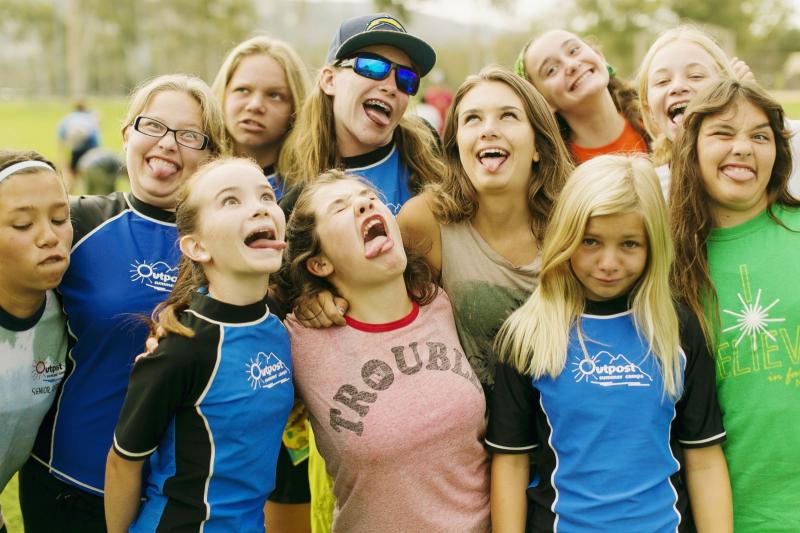
Choosing the right lacrosse camp is an investment. Beyond just the financial commitment, it represents precious summer memories and developmental time for your athlete. With so much on the line, go with your instinct after doing thorough research on program options.
Start with a List of Potential Camps
First, compile a list of prospective lacrosse camps through online searches or word-of-mouth referrals. Consider overnight and day options, elite level and beginner friendly, etc. Cast a wide net at this initial brainstorming phase based on basic factors like location, dates, and costs.
Dig Into the Details
Next, dive deeper into learning about each potential camp. Study the website, read reviews, talk to past attendees, tour facilities if possible. Get clarity on the coaching staff, training methodology, food options, lodging, and off-field activities. Develop an informed picture of the daily experience.
Document Pros and Cons
As you gather details on each program, document the major pros and cons on paper. Note standout strengths like excellent coaching, as well as red flags like negative feedback on equipment. Tracking this information visually allows for easier side-by-side comparison.
Have Your Child Participate
Involve your young athlete in the research process. Show them camp videos, brochures, and pictures. Get their input on interests and preferences. Allowing kids to feel part of the investigative work builds engagement and buy-in.
Empower older players to take the lead on researching. Have them report back on program options they are most excited about.
Focus on Gut Feelings and Intangibles
Beyond the tangible facts, think about the harder-to-quantify factors. Do you get a good vibe from the camp’s website or social media presence? Does the coaching philosophy seem to align with your values? Trust subtle gut feelings that point towards one program over others.
These intangibles like energy, passion, and culture can powerfully shape the camp experience, even if difficult to articulate.
Trust Your Parental Instincts
You know your child better than anyone – their personality, background, motivations, and goals. Leverage those parental insights when assessing camp options. If something feels like an ideal fit or potential bad match for your unique kid, go with that instinct.
Yourtysburg feelings come from a place of deep care and understanding for your young athlete. Seek the camp environment you feel will help them thrive.
Imagine Your Child There

Picture your son or daughter going through each prospective camp experience. Does the rigorous early morning drill session energize or intimidate them? Would your social butterfly daughter like the communal bunks? Envision scenarios to gauge fit.
See your child succeeding, smiling, and developing – which program brings this vision to life most vividly?
Alignment with Big Picture Goals
Consider how well each potential lacrosse camp aligns with bigger picture goals. Is your priority college recruitment exposure? Building fundamental skills up from scratch? The ideal program supports long-term objectives beyond this summer.
Match camp curriculum and specialty areas to your athlete’s needs in the context of their long-term development.
Trust Your Judgment
After thorough research and reflection, trust your judgment and go with your gut. The camp that just “feels right” is likely the best fit. You will have peace of mind knowing you made an intuitive, empowered decision.
Even if a camp doesn’t turn out as hoped, have confidence you did diligent work filtering options. Making informed choices you feel good about is all you can do.
Key Takeaway
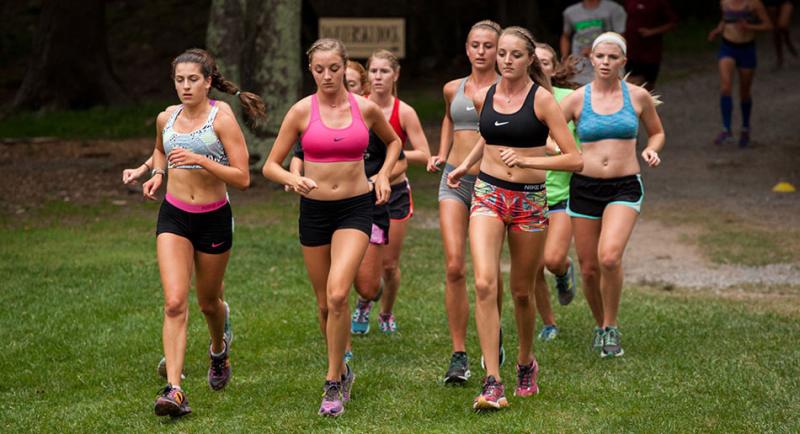
Choosing a lacrosse camp is an exciting decision with a lot at stake. Do rigorous research, then listen to your parental intuition. With information and instinct working together, you will find the ideal lacrosse summer experience.

